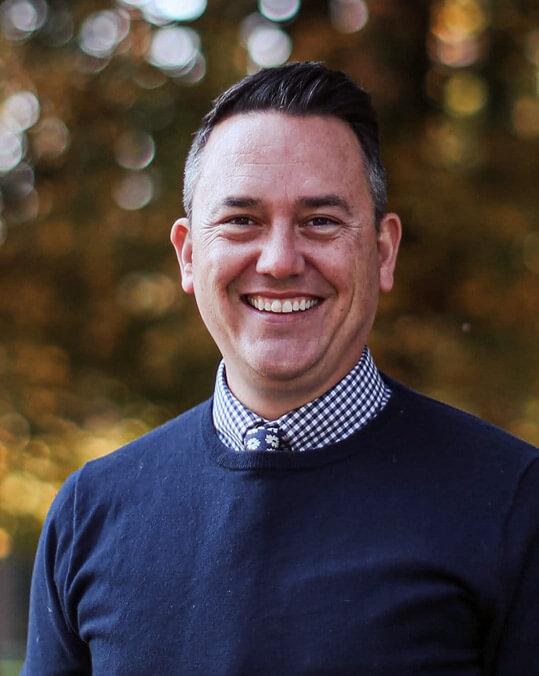Interim Provost's Message
 “A Table in the Trees”
“A Table in the Trees”
When I speak with families and prospective students, I often use two images as a means of encapsulating the uniqueness of Whitworth’s enduring mission of mind and heart. A vision for education grounded in the Christian liberal arts with the express purpose of nurturing character formation and leadership development for a diverse student body.
“Consider,” I encourage, “a table in the trees.” This phrase merges the communal space of the table with the wild, uncharted expanse of the wilderness. Instead of trying to reconcile these images, I believe the paradox of the domestic and the wild embodies the durable and elusive beauty of a Whitworth education.
In many religious and philosophical traditions, and especially in the Judeo-Christian tradition, wild places, the wilderness, or the uncharted often signify spaces where, through either volition or exile, we find clarity of purpose. In the wild places, trials and tribulations line the trail from survival to thriving. When we venture into these wild places, we develop perseverance, tenacity and grit. We delve deep into our psyche, come to understand our strengths and weaknesses, and hopefully find a sense of vocation that will animate our steps as we move into a life beyond the pines.
Set against the backdrop of the Pacific Northwest, the beautiful brick buildings of Whitworth’s campus peek through the pines, a daily, visual reminder that Whitworth is a wild place. During their time at Whitworth, students will develop perseverance, tenacity and grit as they venture into the unknown. From the classroom to the residence hall, online to our downtown campus, the sports field to the chapel, they will be encouraged through every phase of their journey to cultivate their strengths and nurture their passions. This preparation will help them leave this wild place ready for whatever challenges lie ahead, confident in the knowledge that they can do more than simply survive – they can thrive and flourish as they serve others.
The other image is the table. In the Christian tradition, the table is an expression of community – a place where family, friends and strangers gather to break bread, gain insight from different perspectives, and wrestle with new and novel ideas. In short, the table is a place where we experience the power of Christ’s great call on our lives to love our neighbors.
In the context of the Christian liberal arts, the table serves as a metaphor for the great buffet of ideas that shape our students’ learning. From business to biology, theology to sociology, philosophy to physics, the breadth and depth of a liberal arts education provide students with myriad methods and skills for facing the challenges of their time.
The idea of the communion table gains increased significance when we consider our current historical moment of deconstruction and distrust. The invitation to break bread should not be limited to those with whom we agree. Rather, the table is a sacred space where we engage in the deliberate act of shalom – the active and necessary work of peace-making. At a place like Whitworth, students will engage with ideas and others that challenge their assumptions, pique their curiosity, and offer the opportunity to expand their worldview as they engage in the active work of shalom.
Ultimately, we want every student to feel called to the serve world beyond the pines. We don’t expect students to leave Whitworth fully formed; rather, we want them to leave with a sense of purpose, confident that their Christian liberal arts education has prepared them to thrive in an ever-changing world. We know our students will be technically proficient in their areas of study, but more than that, we hope our students are known for their character – people of great curiosity and compassion, servant leaders who give generously to those around them.
In the wild places, we find our purpose. At the table, we find our people.
I pray this year that each of us, even in the midst of continued uncertainty, will lean into our vocation, and model for students the courage necessary to step into the wild places of discovery and innovation, and the humility and curiosity necessary to celebrate with others around the table.
Peace and grace,
John